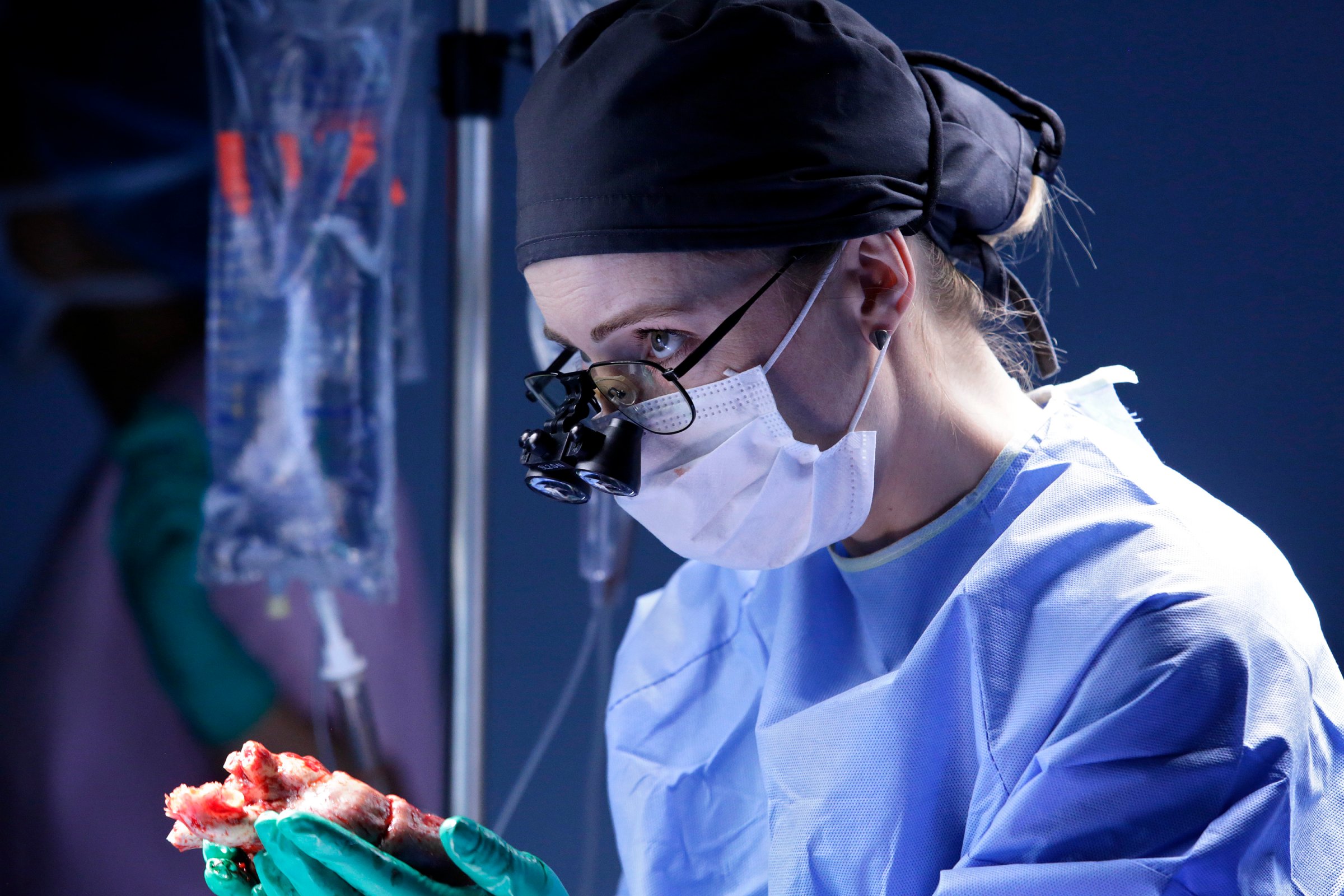
There’s a big difference between wanting to be a heart surgeon and becoming one, especially as a woman. At nearly every institution where I’ve trained, I was the first and only woman to step into those operating rooms, specialize in cardiothoracic surgery and, later, focus on heart transplantation.
The American Board of Thoracic Surgery began certifying heart surgeons in 1948, but the first woman wasn’t certified until 1961. Only 274 women had become board-certified cardiothoracic surgeons since then. The field of cardiothoracic surgery remains largely a man’s world.
At times, sure, I felt like an anomaly. It also felt like everyone was waiting for me to fail, waiting for me to make a misstep. But I live my life by one simple question: “What would you do if you knew you could not fail?” I decided the best way to prove every doubter wrong was to be the best, most innovative surgeon out there and to not let the fear of failure hold me back.
Read more: Sportscaster Amber Theoharis: How to Succeed in a Male-Dominated Industry
The truth is: To advance medical and scientific innovation, you need varying perspectives and experiences—especially women’s. Science is at its best when everyone is represented at the table.
As a longtime volunteer and regional board member of the American Heart Association (AHA), I know the AHA is working hard to support women’s aspirations and their health. From awareness campaigns like Go Red For Women to driving women’s participation in clinical trials to funding One Brave Idea to end coronary heart disease for good, the AHA has made a great partner.
I hope the new show Heartbeat, which was inspired by my experiences, encourages young women to dream big, work hard and follow their passions. Because being a heart surgeon requires lots of things—courage, compassion, perseverance, dexterity—but the one thing it doesn’t require is a Y chromosome.
Being a cardiothoracic surgeon isn’t easy, but I’ve never taken the easy road—I’ve always taken the one less travelled. The job has grueling hours and can cause heartache for doctors, patients and families—particularly when patients just can’t be saved. But on the days where innovative thinking and science lead the way and save a life, nothing is better. Nothing.
Dr. Kathy Magliato is a cardiothoracic surgeon, a longstanding American Heart Association (AHA) volunteer and a board member for the Western States Affiliate of the AHA. Her experiences inspired the NBC show Heartbeat.
More Must-Reads from TIME
- Why Trump’s Message Worked on Latino Men
- What Trump’s Win Could Mean for Housing
- The 100 Must-Read Books of 2024
- Sleep Doctors Share the 1 Tip That’s Changed Their Lives
- Column: Let’s Bring Back Romance
- What It’s Like to Have Long COVID As a Kid
- FX’s Say Nothing Is the Must-Watch Political Thriller of 2024
- Merle Bombardieri Is Helping People Make the Baby Decision
Contact us at letters@time.com